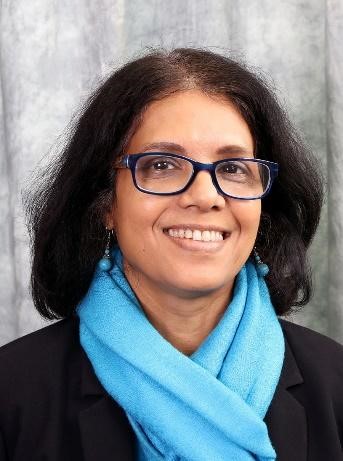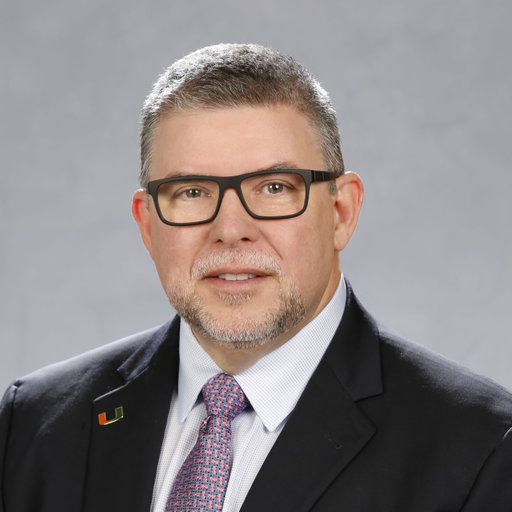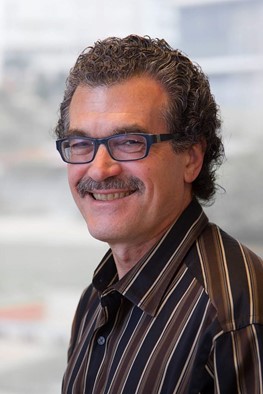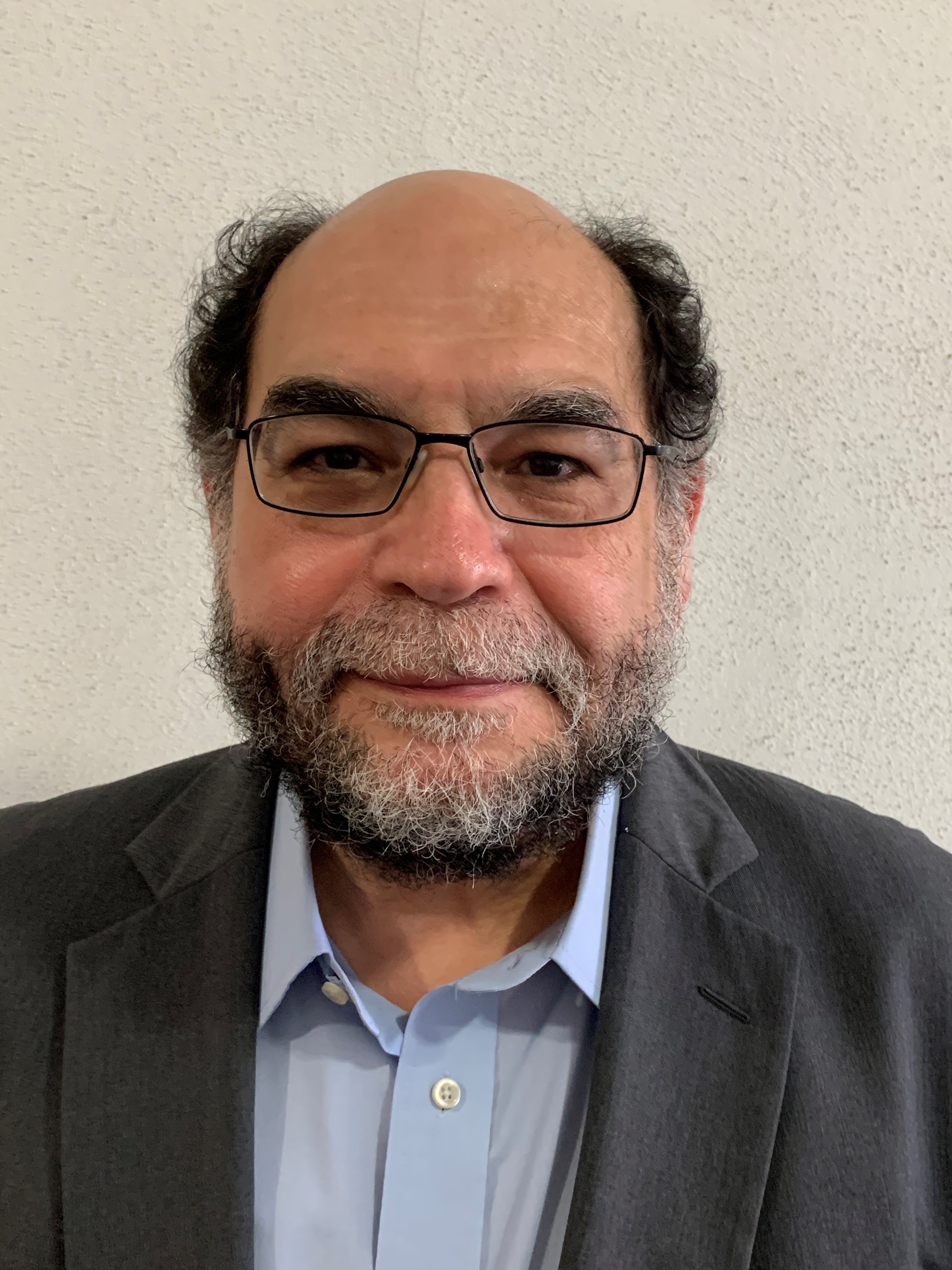Speaker Bios

Raul Caetano, MD, MPH, PhD is a psychiatrist and epidemiologist who has worked in public health for about 35 years. Dr. Caetano’s MD is from the School of Medical Sciences, State University of Rio de Janeiro. His MPH (behavioral sciences) and his PhD (epidemiology) are from the University of California at Berkeley. He was Dean of the Southwestern School of Health Professions at the University of Texas Southwestern Medical Center from 2006 to 2014, and Regional Dean and Professor of Epidemiology, Dallas Regional Campus, University of Texas School of Public Health from 1998 to 2014. He has been a Senior Research Scientist at the Prevention Research Center of PIRE since January 2015. Dr. Caetano has written extensively about alcohol problems among U.S. ethnic minorities, especially among Hispanics. Other areas of research are psychiatric diagnosis and classifications, development of criteria for diagnosis of alcohol dependence, and the association between drinking and intimate partner violence. He has conducted numerous general population and clinical studies of alcohol problems among Whites, Blacks and Hispanics, and has more than 250 papers published in the peer reviewed literature. His research has been consistently supported by the NIH for over 30 years.
Dr. Luis Carvajal-Carmona is a professor of Biochemistry and Molecular Medicine and holds the Auburn Community Cancer Endowed Chair in Basic Science in the University of California Davis (UCD). He is the Associate Director for Basic Science at the UCD Cancer Center. He has a Ph.D. from University College London and carried out postdoctoral training at the London Research Institute and the University of Oxford. Dr. Carvajal-Carmona specializes on cancer genetics, epidemiology, cancer health disparities and global health.

Kathy Cronin is the Deputy Associate Director for the Surveillance Research Program within the Division of Cancer Control and Population Sciences at the National Cancer Institute. Dr. Cronin received her Doctor of Philosophy degree in Operations Research from Cornell University in 1995, and her Master of Public Health degree from John Hopkins University in 1996.
Dr. Cronin originally worked at the National Cancer Institute as a Cancer Prevention Fellow. After completing the 2-year fellowship, she joined the Surveillance Research Program and has been a member of the program for more than 20 years.
Dr. Cronin works closely with the SEER program of cancer registries which collects information on cancer incidence, survival, prevalence and mortality. Her research focuses on describing cancer trends; assessing risk; analyzing survival; and modeling the impact of population trends in risk factors, screening, and treatment on cancer incidence and mortality.

Robert Croyle, PhD, was appointed director of the Division of Cancer Control and Population Sciences (DCCPS), National Cancer Institute (NCI), in July 2003. In this role, he is responsible for overseeing a research portfolio and operating budget of more than a half billion dollars and serves on NCI’s Scientific Program Leaders Committee. As a division, DCCPS covers a wide range of scientific domains and disciplines, including epidemiology, behavioral science, surveillance and statistics, cancer survivorship, and health services and outcomes research. He previously served as the division’s associate director for the Behavioral Research Program, leading its development and expansion. Before coming to NCI in 1998, he was professor of psychology and a member of the Huntsman Cancer Institute at the University of Utah in Salt Lake City. Dr. Croyle's research has examined how individuals process, evaluate, and respond to cancer risk information, including tests for inherited mutations in BRCA1 and BRCA2. His research has been published widely in professional journals in behavioral science, public health, and cancer, and he has edited two volumes: Mental Representation inHealth and Illness (1991) and Psychosocial Effects of Screening for Disease Prevention and Detection (1995). He is co-editor of the Handbook of Cancer Control and Behavioral Science (2009) and co-author of Making Data Talk: Communicating Data to the Public, Policy Makers and the Press (2009). He is also co-editor of Strategies for Team Science Success (2019).

Dr. Marcia Cruz-Correa obtained a B.S. in Biology and medical degree at the University of Puerto Rico (UPR). She completed a residency in Internal Medicine at the UPR, a fellowship in Gastroenterology & Hepatology at Johns Hopkins University (JHU), and a doctorate in Clinical Investigation and Genetic Epidemiology at JHU Bloomberg School of Public Health.
Dr. Cruz-Correa is a Professor of Medicine at the UPR, Adjunct Associate Professor of Medicine at JHU (Baltimore, MD), and Adjunct Professor of Surgical Oncology at MD Anderson Cancer Center (Houston, TX). She is the Executive Director of the UPR Comprehensive Cancer Center, leads the Gastrointestinal Oncology Research Program and Hispanic Alliance for Clinical & Translational Research, and is the Chief Medical Officer of Pan-American Center for Oncology Trials. Dr. Cruz-Correa is a physician-scientist with a strong focus on chemoprevention, molecular epidemiology of gastrointestinal cancers, and health disparities. The NIH has continuously funded her for over 18 years.
She is actively involved in several national professional organizations, including the American Association for Cancer Research (governing board member), as past Chair of the AACR Minorities in Cancer Research Council and Women in Cancer Research. She is the PR Colorectal Cancer Coalition's governing board member and past board member of the NCI National Cancer Advisory Board and the American Gastroenterology Association. She is also editor of several prestigious medical journals, including Gastroenterology and AACR Cancer Prevention Research. Dr. Cruz-Correa has over 100 peer-reviewed scientific articles and has mentored over 50 graduate students as thesis/research advisor.

Dr. Rina Das is a Scientific Program Director at NIMHD in the Division of Integrative Biological and Behavioral Sciences. She focuses on promoting research to understand and address the various factors that play a role in health disparities in different underserved populations. She lends her expertise to a wide array of NIMHD programs that seek to improve minority health and health disparities, including translational sciences, cancer health disparities, research on the intersection of biological and social sciences, social epigenomics, sleep health disparities, community-based interventions and immigrant health. At NIMHD she initiated the Immigrant health program to improve our understanding of the factors for health advantages and health disparities among immigrant populations and to develop intervention to address the health disparities. Prior to joining NIMHD, Dr. Das served as a Program Director at the Center to Reduce Cancer Health Disparities at the National Cancer Institute. She managed programs on cancer health disparities research that focused on community-based interventions among various racial/ethnic minority populations, the role biological factors play in cancer disparities, and grants that enable training to improve diversity in the research workforce. Dr. Das also served as a Scientific Review Officer (SRO) at the National Heart, Lung, and Blood Institute.

Dr. Adam de Smith is an Assistant Professor in the Department of Population and Public Health Sciences in the USC Keck School of Medicine, and a member of the USC Center for Genetic Epidemiology and the Norris Comprehensive Cancer Center. Dr. de Smith is a genetic epidemiologist with a research focus on understanding the etiology of acute lymphoblastic leukemia (ALL), the most common cancer in children. He leads studies of genetic and environmental risk factors in childhood ALL, with a particular interest in the increased risk of leukemia in children with Down syndrome and the increased risk of ALL in individuals of Hispanic/Latino ethnicity.

Joanne Elena, Ph.D., M.P.H., is an Epidemiologist and Program Director in the Clinical and Translational Epidemiology Branch of the Epidemiology and Genomics Research Program, Division of Cancer Control and Population Sciences (DCCPS) at the National Cancer Institute (NCI). She is responsible for developing, managing, and promoting a research portfolio of grants focused on diet and lifestyle factors that influence cancer progression, subsequent primary cancers, recurrence, and survival. She is also involved in optimizing the use and design of cohort studies, incorporating new technologies to assess exposures and outcomes, maximizing the use of existing data, and manages several funding announcements that support infrastructure needs for large cohort studies. She serves as the Scientific Director for NCI’s Cohort Consortium and is EGRP’s co-coordinator for cohort activities.
Dr. Elena completed her Ph.D. in nutritional epidemiology at the University of North Carolina at Chapel Hill and her M.P.H. at the Johns Hopkins Bloomberg School of Public Health.

Dr. Fejerman is an Associated Professor in the Department of Public Health Sciences, School of Medicine at the University of California Davis. She is the Director of the Women’s Cancer Care and Research Program (WeCaRe), co-Director of the Latinos United for Cancer Health Advancement (LUCHA) initiative, and Assistant Director of Education, Training, and Career Development in the UC Davis (UCD) Comprehensive Cancer Center (CCC). She earned her PhD in Biological Anthropology and MSc in Human Biology at the University of Oxford, England. She completed her undergraduate degree in Social Anthropology at the University of Buenos Aires, Argentina.
Dr. Fejerman’s research focuses on the discovery of genetic and non-genetic factors that contribute to breast cancer risk and prognosis in Latina women. She built the Peruvian Genetics/Genomics of Breast Cancer (PEGEN-BC) Study collaborating with the Instituto Nacional de Enfermedades Neoplasicas, Lima, Peru, which includes ~2,000 women with breast cancer. She also leads the Latin America Genetics and Genomics of Breast Cancer Consortium (LAGENO-BC) which brings together researchers from the U.S. and Latin American countries to study the genetics of breast cancer in Latina women. Dr. Fejerman’s efforts also include the development of cancer education and navigation programs for Latinas.
Dr. Lisa Gallicchio is a Program Director and Epidemiologist in the Clinical and Translational Epidemiology Branch (CTEB) within the Epidemiology and Genomics Research Program (EGRP), the Division of Cancer Control and Population Sciences (DCCPS) at NCI. She is responsible for managing a research portfolio of grants focused on clinical, lifestyle, and genomic factors that affect outcomes among cancer survivors, including those factors that may contribute to observed disparities in health outcomes. Notably, Dr. Gallicchio co-leads DCCPS’s Cancer and Accelerated Aging initiative, which is focused on better understanding the effects that a cancer diagnosis and its treatment have on aging trajectories. Her other interests include post-diagnosis rare cancer outcomes and survivorship, the occurrence and effects of sleep disturbance and circadian rhythm disruption among cancer patients and survivors, and the application of epidemiologic methods to studying post-diagnosis cancer outcomes. Prior to joining EGRP, Dr. Gallicchio was a Senior Epidemiologist in The Prevention and Research Center in the Weinberg Center for Women's Health & Medicine at Mercy Medical Center. She was the Principal Investigator of a cohort study examining racial differences in the cardiovascular health effects of aromatase inhibitors, a hormonal therapy commonly used among breast cancer patients.

Dr. Montserrat García-Closas received her M.D. from the University of Barcelona, Spain, a Master of Public Health in quantitative methods, and a Doctorate of Public Health in epidemiology from the Harvard School of Public Health. She joined DCEG in 1996 as a postdoctoral fellow, became a tenure-track investigator in 1999 and a tenured senior investigator in 2007. From 2008-2010, she was a visiting scientist at the Department of Oncology and Strangeways Laboratory, Cambridge University, U.K. In 2010, she became a Professor of Epidemiology at the Division of Genetic and Epidemiology of the Institute of Cancer Research (ICR), University of London, U.K. In 2015, she returned to DCEG as Deputy Director and senior investigator. She was appointed Interim Branch Chief for the Integrative Tumor Epidemiology Branch (ITEB) from 2016-2020, and in 2020 she was appointed Director of the Trans-Divisional Research Program (TDRP).
As Deputy Director for the NCI Division of Cancer Epidemiology and Genetics (DCEG), and Director of the TDRP, Dr. García-Closas focuses not only on her own research interests, but also on the management of the broad scientific program of the Division.

Dr. Maggie Gates Kuliszewski received a Doctor of Science in Epidemiology from the Harvard School of Public Health in 2007 and completed a postdoctoral fellowship in epidemiology at Harvard in 2010. She is currently a Research Scientist at the New York State Cancer Registry, where she leads the Registry’s Research Unit and co-leads the Analysis and Output Unit. She also holds an appointment as an Assistant Professor of Epidemiology at the University at Albany School of Public Health. Dr. Gates Kuliszewski has over 20 years of experience working in cancer research and has published over 40 manuscripts in peer-reviewed journals.

Dr. Rachel Hanisch recently joined the Genomic Epidemiology Branch (GEB) in the Epidemiology and Genomics Research Program (EGRP) as a contractor with Kelly Government Solutions. In this capacity, Dr. Hanisch is involved in both GEB and Program-wide activities related to patient engagement, consumer genetic testing, cancer registry development, and early life exposure topics.
Before joining EGRP, Dr. Hanisch was a Cancer Program Manager for the President’s Cancer Panel. She contributed to the work of the Panel by aiding in the process of gathering and synthesizing information on high-priority cancer topics that are identified by the Panel. This information ultimately aided in understanding potential solutions to these topics and framing actionable recommendations for the President and the public.
Dr. Hanisch has a special interest in global health efforts related to cancer screening and care. Over the course of her career, Dr. Hanisch has worked on a variety of research and implementation initiatives involving cancer screening, care, and prevention in locations including Colombia, Ecuador, Senegal, and Tanzania. Dr. Hanisch also serves as a Visiting Professor at the University of Campinas School of Medical Sciences in Brazil where she is the principal lecturer of a class entitled “Scientific Writing for Non-Native English Speakers.”

Dr. Yuling Hong is Chief, Epidemiology Branch, Division of Cardiovascular Sciences, National Heart, Lung, and Blood Institute, National Institutes of Health. Prior to joining the NHLBI, he was Associate Director of Science and Senior Scientist in the Division for Heart Disease and Stroke Prevention, the Centers for Disease Control and Prevention, directed the American Heart Association Statistics and Epidemiology Unit, and was a faculty member at Washington University School of Medicine in St Louis, Missouri. Dr. Hong received his medical degree from the Shanghai Medical University in China, Master of Science degree from the Erasmus University in the Netherlands, and PhD degree from the Karolinska Institute in Sweden. His areas of expertise include cardiovascular epidemiology and prevention, genetic epidemiology, and evidence-based guideline development.

Amy Kennedy, Ph.D., M.P.H., is the Health Disparities Research Coordinator in the Office of the Director in the Division of Cancer Control and Population Sciences at the National Cancer Institute. In this role, she coordinates and leads trans-divisional initiatives to promote research priorities, with a primary focus on cancer health disparities and equity opportunities. Dr. Kennedy’s work focuses on improving the understanding of cancer health disparities in an effort to achieve health equity for all, with particular interest in cancer control issues experienced by Native American populations, geographic cancer disparities, genetic susceptibility differences between populations, and disparities in pediatric cancer risk and outcomes.
Amy first joined the NCI in 2014 as a Cancer Research Training Award Fellow in the Epidemiology and Genomics Research Program, and then became a Presidential Management Fellow in the fall of 2015. Prior to rejoining the Division in 2020, Dr. Kennedy worked in the Center for Research Strategy in the NCI Office of the Director, where her responsibilities included trans-NCI strategic planning efforts of high-priority fields in cancer research, focusing on cancer disparities, and analyses to inform policy and decision making and program management.
Dr. Kennedy earned her Ph.D. in Public Health (Epidemiology) and M.P.H. (Environmental Health Sciences) from Florida International University, and her B.S. in Biology from the University of Miami. Her dissertation work in genetic epidemiology investigated correlations among genetic mutations, birth characteristics, and the risk of childhood acute lymphoblastic leukemia in diverse populations.

Dr. Jill Koshiol received her Ph.D. in epidemiology from the University of North Carolina at Chapel Hill School of Public Health in 2005. Subsequently, she joined the Genetic Epidemiology Branch of the Division of Cancer Epidemiology and Genetics as a Cancer Prevention Fellow. Dr. Koshiol joined the Infections and Immunoepidemiology Branch as a research fellow in 2008, became an Earl Stadtman Tenure-Track Investigator in 2010, and was awarded NIH scientific tenure and promoted to senior investigator in 2020.

Dr. Gabriel Lai is a Program Director in the Environmental Epidemiology Branch (EEB) of the Epidemiology and Genomics Research Program (EGRP) in NCI's Division of Cancer Control and Population Sciences (DCCPS). His responsibilities include managing a research portfolio and developing research initiatives related to a spectrum of modifiable factors and environmental exposures (e.g., obesity, diabetes, lifestyle, microbiome, and radiation) associated with cancer. He serves as the NCI point of contact for a number of initiatives including Human Health Exposure Analysis Resource (HHEAR), a trans-NIH program that enables NIH-funded researchers to measure environmental exposures by providing laboratory, statistical, and data science analysis services. Before joining EGRP, Dr. Lai was a Cancer Prevention Fellow in the Nutritional Epidemiology Branch in NCI's intramural Division of Cancer Epidemiology and Genetics. In this position, he developed and conducted research to evaluate diet and energy metabolism in liver and other cancers in large U.S. and international cohort studies.

Dr. Tram Kim Lam is a Program Director in the Environmental Epidemiology Branch of the Epidemiology and Genomics Research Program (EGRP) at the NCI's Division of Cancer Control and Population Sciences (DCCPS). She oversees a diverse research grant portfolio that focuses on modifiable factors (e.g., infectious agents, environmental exposures, genomics, and lifestyles) and the interplay between determinants of cancer and how they influence susceptibility to cancer nationally and globally. Dr. Lam is leading several trans-NCI initiatives, including the Metabolic Dysregulation and Cancer Risk Program, Epidemiologic Research on Emerging Risk Factors and Liver Cancer Susceptibility, and Co-infection and Cancer.
Dr. Lam received her undergraduate degree at Yale University and her doctorate degree at Johns Hopkins Bloomberg School of Public Health. She began her post-doctoral career at the NCI as a Cancer Prevention Fellow and then became a Cancer Research Training Fellow in the Division of Cancer Epidemiology and Genetics. During her public health career, Dr. Lam's research interests crossed disciplines and included epidemiologic studies on genetic and lifestyle factors associated with cancers, international collaboration on HIV-AIDS intervention in Southeast Asia and East Africa, and community-participatory research and health promotion to reduce cervical cancer incidence in underserved populations.

Dr. Somdat Mahabir is a Program Director in the Environmental Epidemiology Branch (EEB) of the Epidemiology and Genomics Research Program (EGRP) in NCI's Division of Cancer Control and Population Sciences (DCCPS). His responsibilities include the management of a research portfolio that focuses on cancer epidemiology of modifiable risk factors such as environmental exposures and lifestyle factors. Dr. Mahabir has expertise in the management of several NCI-funded large-scale research projects. These include the Multi-Ethnic Cohort (MEC) Studies and the California Teachers Study (CTS). He was also involved with the development of the NIH Environmental Influences on Child Health Outcomes (ECHO) Program and afterwards continued to serve as Project Scientist. Dr. Mahabir also served as Co-Chair for Research on the 2019-2023 Trans-NIH Strategic Plan for Women’s Health Research. He is a member of the Core Planning Group of the Trans-NIH Developmental Origins of Health and Disease (DOHaD) working group and other scientific groups.
Dr. Mahabir led collaborative efforts between NCI and the National Institute of Environmental Health Science (NIEHS) to develop New Cohorts for Environmental Exposures and Cancer Risk (CEECR) and currently serves as the scientific contact for NCI’s Funding Opportunity Announcements on these initiatives (RFA-CA-20-049 and RFA-CA-20-050). He also is EGRP's scientific point of contact for the International Childhood Cancer Cohort Consortium (I4C) and Childhood Leukemia International Consortium (CLIC).

Dr. Martin oversees a portfolio of grants on the epidemiology of Alzheimer’s Disease and other related dementia, with a focus on disparities and global health. Prior to joining NIA, she served as the Cancer Disparities and Global Health Coordinator in the NCI's Division of Cancer Control and Population Sciences for 12 years. Her responsibilities included managing a portfolio of large, multi-site cohort studies related to health disparities, environmental and genetic epidemiology; developing strategies for advancing cancer disparities research and spearheading several global health initiatives, including an assessment of policies for cervical cancer prevention and cancer registration in the Caribbean and the creation of a framework for comprehensive cancer research in Africa. Dr. Martin obtained her Ph.D. (2004) in Cell Biology and Molecular Genetics at the University of Maryland in College Park and her MPH (2005) in Epidemiology and Biostatistics at the Johns Hopkins Bloomberg School of Public Health.

Douglas Morgan, MD, MPH, FACG, serves as the Director of the Division of Gastroenterology and Hepatology at The University of Alabama at Birmingham (UAB). Dr. Morgan received his medical degree from Case Western Reserve University. He completed his postgraduate training in Internal Medicine and Gastroenterology at the University of California, San Francisco, and earned an MPH in Epidemiology at the University of California, Berkeley. He has held faculty appointments at the University of North Carolina, Chapel Hill and Vanderbilt University. He served as a Peace Corps engineer in Central America prior to medical school.
Dr. Morgan has a track record of academic research, education and clinical service in gastroenterology, epidemiology, and global health. His central research interest is cancer epidemiology and prevention in Hispanic-Latino populations in Latin America and the U.S. The specific focus is gastric adenocarcinoma in the core LMICs of northern Central America, labeled the Central America Four (CA-4: Honduras, Guatemala, El Salvador, and Nicaragua), where systematic and genetic epidemiology, chemoprevention, and appropriate technology initiatives have been positioned for over 15 years. This platform has served has the foundation for broader cancer control and capacity building programs in Latin America. He has leveraged the natural synergy between Central America and the U.S. Latinx populations. As the founding PI and Director of the grant-funded UNC Center for Latino Health (CELAH), a unique clinical infrastructure was designed to serve central North Carolina Hispanic populations, the majority of whom are recent immigrants from rural Mesoamerica.

Anna María Nápoles, PhD, is the Scientific Director of the Division of Intramural Research at the National Institute on Minority Health and Health Disparities (NIMHD). She is the first Latina named to the position at the National Institutes of Health. Dr. Nápoles joins NIMHD from the University of California San Francisco (UCSF) where she served as a professor and behavioral epidemiologist in the Division of General Internal Medicine, Department of Medicine. Dr. Nápoles has over 30 years’ experience in research on patient-clinician communication, cancer control disparities, psycho-oncology, and community-based models of research among racially, ethnically, and socioeconomically diverse populations. She is passionate about bringing more diversity to the biomedical workforce at NIIH and more broadly, serving on numerous committees with that intent. She has served as a scientific advisor to numerous NIH and non-NIH funded research projects, advising on the use of advanced qualitative and quantitative methods for studying complex socio-behavioral processes that affect the health of populations experiencing disparities. At NIMHD, Dr. Nápoles oversees the executive direction and scientific leadership for the intramural research program that focuses on population and community health, epidemiology and social epigenomics, and social- behavioral research, while utilizing the robust basic science environment at NIH.

Frank J. Penedo, Ph.D. is Associate Director for Cancer Survivorship and Translational Behavioral Sciences at the University of Miami Sylvester Comprehensive Cancer Center and Sylvester Professor of Psychology and Medicine. He received his Ph.D. in clinical health psychology at the University of Miami and completed his clinical residency at the University of Pittsburgh Western Psychiatric Institute in psychosocial oncology and behavioral medicine. From 2000 until 2012, he held a faculty position in the Department of Psychology at the University of Miami. In 2012, he joined Northwestern University in Chicago and was awarded the inaugural Roswell Park endowed chair in the Department of Medical Social Sciences. There he served as Director of Survivorship and established the Cancer Survivorship Institute. His work evaluates sociocultural, biobehavioral and psychosocial mechanisms underlying health outcomes, and the efficacy of evidence-based psychosocial interventions in improving cancer outcomes. His work also involves translational and health disparities research evaluating the impact of symptom and toxicities monitoring and management in ambulatory oncology. He has been President of the International Society of Behavioral Medicine, and his research and mentoring has been recognized by numerous awards from prestigious societies in his field. He is a fellow of the Society of Behavioral Medicine and the Academy of Behavioral Medicine Research, serves in numerous NIH study sections and as associate editor or referee for multiple journals. He is the author of more than 250 articles in cancer survivorship and disease management and has been continuously funded by the NIH for the past 20 years.

Eliseo J. Pérez-Stable, MD, is Director of the National Institute on Minority Health and Health Disparities (NIMHD) at the National Institutes of Health (NIH). He oversees the Institute's appropriated budget of $390.4 million to advance the science of minority health and health disparities. Dr. Pérez-Stable is a recognized leader in Latino health care with expertise that spans a broad range of health disparities disciplines. His research interests have centered on improving the health of racial and ethnic minorities through effective prevention interventions, understanding underlying causes of health disparities, and advancing patient-centered care for underserved populations. Dr. Pérez-Stable was born in Cuba and grew up in Miami, Florida. He earned his B.A. in chemistry from the University of Miami and his M.D. from the University of Miami School of Medicine. He completed his primary care internal medicine residency and research fellowship at UCSF. He is a recipient of numerous awards and honors, including the 2021 finalist for the Samuel J. Heyman Service to America Medals
Paulo S. Pinheiro is a Research Associate Professor of Epidemiology at the University of Miami Miller School of Medicine, with over 20 years of experience in population-based cancer epidemiology. He is an MD Coimbra Portugal, a MS from Rotterdam the Netherlands and a Ph.D. in Epidemiology from Miami, FL and has completed two fellowships at the International Agency for Research on Cancer in Lyon, France. His research interests primarily focus on cancer incidence and outcomes in Hispanic/Latino and other minority populations. He has conducted consistently pioneering studies which examine cancer incidence, survival and mortality patterns across detailed racial/ethnic groups including Cubans, Mexicans and Puerto Ricans, among others. Dr. Pinheiro has over 60 peer-reviewed publications, 20 of them as the first author, with more than 3000 citations to date. He has presented over 20 presentations in conferences in four different continents. He participates regularly in NIH grant review panels for the Cancer Section and contributed to national reports and monograph initiatives from the National Cancer Institute, the American Cancer Society, and the Centers for Disease Control and Prevention. His current funded research from the Florida Biomedical Bankhead Coley and Live Like Bella Research Programs includes racial-ethnic disparities in lung cancer, hepatocellular carcinoma and childhood cancers.

Dr. Alice B. Popejoy is an Assistant Professor in the Division of Epidemiology, Department of Public Health Sciences at UC Davis. She conducted postdoctoral research at Stanford University in the Department of Biomedical Data Science and the Stanford Center for Biomedical Ethics, after receiving a PhD in Public Health Genetics and a Certificate in Statistical Genetics from the University of Washington. Dr. Popejoy's Public Health Genomics lab operates at the intersections of computational genomics, human population genetics, clinical genetics, biomedical data science, and bioethics. Her current research is focused on investigating diversity measures such as race, ethnicity, and ancestry in genomics and medicine, with the goal of developing standards, recommendations, and novel approaches to modeling human population diversity. She is involved in several national and international Consortia, leading the Ancestry & Diversity Working Group of the Clinical Genome Resource (ClinGen) and the embedded ethical, legal, social implications (ELSI) team of the Human Pangenome Reference Consortium (HPRC).

Camille Pottinger is a health specialist in the Population and Genetics Branch of the Division of Neuroscience at the National Institute on Aging (NIA), supporting the population portfolio.
Prior to joining NIA, Ms. Pottinger worked in the Epidemiology and Genomics Research Program's (EGRP), Division of Cancer Control and Population Sciences at the National Cancer Institute (NCI). She served as the Executive Director of the NCI Cohort Consortium and led in the day-to-day operations of the organization, including carrying out the organization’s goals and policies. Additionally, she led in the evaluation of a NIH research portfolio to determine the current landscape of funded cancer epidemiologic research among US Hispanic populations. Camille first joined NIH in 2016 as a Cancer Research Training Award Fellow in EGRP to assist in the coordination, planning, and analysis of NCI Cohort Consortium activities as well as other EGRP and NCI programmatic and scientific activities.
Ms. Pottinger received a Master’s degree in public health in epidemiology of microbial diseases from the Yale School of Public Health. She is currently pursuing a Doctor of Public Health degree from Morgan State University and is a predoctoral clinical research fellow at Johns Hopkins University. Her interest areas include public health prevention and minority women’s health.

Dr. Amelie G. Ramirez, Chair and Professor of Population Health Sciences and Director of the Institute for Health Promotion Research at UT Health San Antonio
Amelie G. Ramirez, DrPH, an internationally recognized cancer and chronic disease health disparities and health promotion researcher, is chair and professor of Population Health Sciences at UT Health San Antonio, where she also is founding director of the Institute for Health Promotion Research and associate director of cancer outreach and engagement at the Mays Cancer Center at UT Health San Antonio.
Over the past 30 years, Dr. Ramirez has directed over 100 research programs focused on human and organizational communication to reduce chronic disease and cancer health disparities affecting Latinos and other minority and underserved populations, including cancer risk factors, clinical trial recruitment, patient navigation, tobacco prevention, obesity prevention, and more.
Dr. Ramirez has authored many peer-reviewed articles, is an editorial board member on several prestigious journals, and is frequently invited to speak at scientific meetings. She has been widely recognized for her work to improve Latino health and advance Latinos in medicine, public health, and behavioral sciences across the U.S. Dr. Ramirez is on the San Antonio Mayor’s Fitness Council and is Board President of The Academy of Medicine, Engineering and Science of Texas. Dr. Ramirez is a native of Laredo, Texas. She received her MPH and DrPH degrees from The University of Texas Health Science Center at Houston.

Rogelio Sáenz is a sociologist and demographer at the University of Texas at San Antonio (UTSA), where he is professor in the Department of Demography. He has written extensively in the areas of demography, Latina/os, race, inequality, immigration, COVID-19, health disparities, aging, public policy, and social justice. Sáenz is co-author of Latinos in the United States: Diversity and Change and co-editor of the International Handbook of the Demography of Race and Ethnicity. He has written widely over the last year on the impact of COVID-19 on the Latino community. Sáenz regularly writes op-ed essays and research briefs for a variety of media and academic outlets throughout the country. Sáenz recently received the prestigious 2020 Saber es Poder Academic Excellence Award from the University of Arizona’s Department of Mexican American Studies and the 2021 Cox-Johnson-Frazier Award from the American Sociological Association.

Dr. V. Wendy Setiawan is Professor of Population and Public Health Sciences and Professor of Medicine at USC Keck School of Medicine. She is a Co-Leader of the Cancer Epidemiology Program in the Norris Comprehensive Cancer Center and the Associate Director for Population Sciences in the USC Research Center for Liver Diseases. Dr. Setiawan is a cancer epidemiologist focusing on understanding the determinants of ethnic differences in cancer incidence and mortality and identifying populations at highest risk because of biologic factors and environmental exposures. Her research goal is to identify effective modalities for disease prevention for population at risk and ultimately reduce cancer health disparities. Her primary research interest in cancer study is focused on liver, pancreatic and endometrial cancer.
Dr. Setiawan has been leading many projects in epidemiologic studies including the Multiethnic Cohort Study and the NCI Epidemiology of Endometrial Cancer Consortium (E2C2). She received an NCI’s career development award (K07) early in her career, and she is currently Principal Investigator of four active NCI and NIMHD-funded R01s and co-investigator of several NIH grants. Her studies utilize multi-level data integration encompassing genetics, biomarkers, lifestyle, and social/contextual factors to elucidate factors associated with differences in cancer incidence and outcome across ethnic groups. She has published >150 peer-reviewed papers, book chapters and review articles. She currently serves on the JNCI editorial board and she is a standing member of the NCI Career Development (K award) study section.

Norman E. “Ned” Sharpless, M.D., was officially sworn in as the 15th director of the National Cancer Institute (NCI) on October 17, 2017. Prior to his appointment, Dr. Sharpless served as the director of the Lineberger Comprehensive Cancer Center at the University of North Carolina (UNC).
Dr. Sharpless was a Morehead Scholar at UNC–Chapel Hill and received his undergraduate degree in mathematics. He went on to pursue his medical degree from the UNC School of Medicine, graduating with honors and distinction in 1993. He then completed his internal medicine residency at the Massachusetts General Hospital and a hematology/oncology fellowship at Dana-Farber/Partners Cancer Care, both of Harvard Medical School in Boston. After 2 years on the faculty at Harvard Medical School, he joined the faculty of the UNC School of Medicine in the Departments of Medicine and Genetics in 2002. He became the Wellcome Professor of Cancer Research at UNC in 2012.
Dr. Sharpless is a member of the Association of American Physicians and the American Society for Clinical Investigation, and is a Fellow of the Academy of the American Association of Cancer Research. He has authored more than 160 original scientific papers, reviews, and book chapters, and is an inventor on 10 patents. He cofounded two clinical-stage biotechnology companies: G1 Therapeutics and Sapere Bio (formerly HealthSpan Diagnostics). He served as Acting Commissioner for Food and Drugs at the US FDA for seven months in 2019, before returning to the NCI Directorship

Shobha Srinivasan, PhD, is a sociologist and the Senior Advisor for Health Disparities in the Office of the Director, Division of Cancer Control and Population Sciences (DCCPS), National Cancer Institute (NCI). She currently coordinates activities across DCCPS, NCI, the National Institutes of Health, and with other federal and non-governmental agencies to develop programs and initiatives to address health disparities and promote health equity. Through these NCI-funded programs she promotes the building of partnerships between communities and universities to address various health challenges in underserved and immigrant communities. Previously, she has taught and conducted research at various universities, and also has worked as a research director in a community-based health advocacy organization. Her research focuses primarily on social determinants of health, place, and inequities, including challenges in the utilization and access to health services. In all these projects, the goal is largely to inform health policy at the local, state, and national levels regarding health and health care for underserved and underrepresented populations.

Dr. Mariana Stern is a Professor of Population and Public Health Sciences & Urology and the Ira Goodman Chair in Cancer Research at the Keck School of Medicine of USC. She is also the Associate Director of Population Science at the Norris Comprehensive Cancer Center, and currently serves as Director of Master Degree programs in Epidemiology in Preventive Medicine. Dr. Stern is a cancer epidemiologist and was born and raised in Argentina, where she obtained her undergraduate degree in Biology at the University of Buenos Aires. She has a PhD in Cancer Biology from the University of Texas, M.D. Anderson Cancer Center, and post-doctoral training in epidemiology obtained at the National Institute of Environmental Health Sciences (NIEHS), Epidemiology Branch. Dr. Stern was appointed by the California Governor to the Carcinogen Identification Committee of Proposition 65, for the California Office of Environmental Health Hazard Assessment, and co-directs the co-lead the NCI-funded Cancer Research Education and Engagement (CaRE2) Health Equity Center, a partnership with the University of Florida and Florida A&M university, dedicated to eliminating disparities among Blacks and Hispanics and training the next generation of underrepresented minority scientists. Her research is focused on health disparities among Blacks and Hispanics.

Dr. Talavera is a bilingual, bicultural physician with over 30 years of community-based clinical and public health research experience. He obtained his BA from the University of California, San Diego (UCSD), a Medical Degree from the University of Utah and his MPH and Preventive Medicine residency training from the San Diego State University/University of California, San Diego joint program. Currently he is Professor in the School of Public Health at San Diego State University and Founder and Co-Director of the South Bay Latino Research Center. He has dedicated his clinical practice, research and advocacy to reducing disparities in the Latino Community both in San Diego and nationally. During the early part of his career, he practiced medicine in the Spanish-speaking, underserved communities of San Diego's border region. Over the last 30 years he has designed and managed research programs involving cardiovascular disease prevention, breast and cervical cancer screening promotion, behavioral interventions for diabetes care, recruitment of minorities into long-term clinical trials, and smoking cessation. In total he has led 21 grants, contracts and supplements totaling over $32 million in direct costs. All of these service and research programs have been culturally- and linguistically- appropriate for indigent, low-literacy Spanish-speaking Latinos. He has mentored numerous high school, undergraduate, masters, pre-doctoral students. Since 2006 he has been the principal investigator for the landmark Hispanic Community Health Study/Study of Latinos, a longitudinal study of Latino health in 4 US cities and the largest study of Latino health in the US.

Dr. Edward Trapido is the Wendell Gauthier Professor of Cancer Epidemiology and Associate Dean for Research at the Louisiana State University School of Public Health. He is also Deputy Director for Population Science in the Stanley S. Scott Cancer Center. Before joining LSU, Dr. Trapido was Professor of the Department of Epidemiology and Public Health and Vice-Chair for Education at the University of Miami Miller School of Medicine. From 2003-2008, he was also Deputy Director for International Cancer Control in the Office of International Affairs at the NCI and Associate Director of their Epidemiology and Genetics Research Program. Dr. Trapido also evaluated the UN’s International Atomic Energy Agency “Program of Action in Cancer Therapy’s” evaluation. An epidemiologist by training, Dr. Trapido received his ScD and ScM degrees from the Harvard University School of Public Health and an MSPH in Parasitology from the University of North Carolina in Chapel Hill. Dr. Trapido is the Founding President of the American College of Epidemiology Research and Education Foundation. Much of Dr. Trapido’s career has focused on Cancer Epidemiology and Control in Hispanic populations. He continues to serve as Co-Chair of the Advancing the Science of Cancer in Latinos Conference with Dr. Amelie Ramirez.